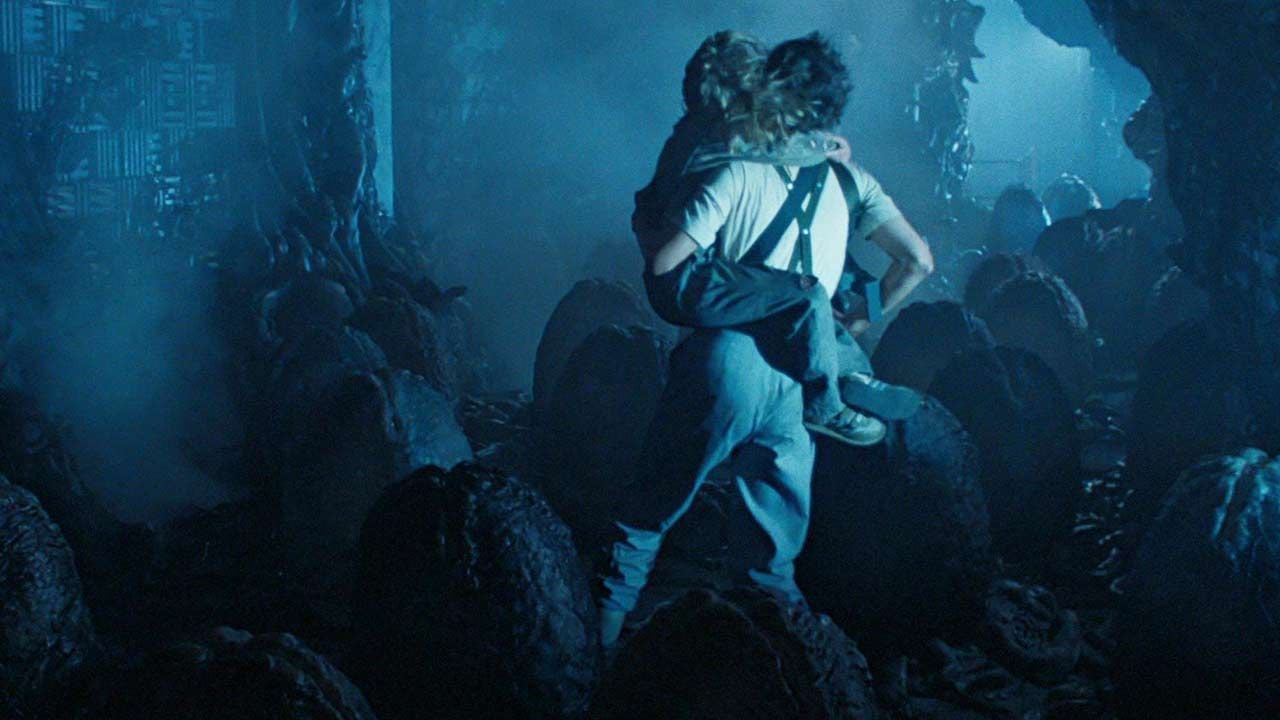In a future where the boundaries between the human and the artificial are blurred, the philosophical reflections proposed by Philip K. Dick come to life in the universe of Blade Runner. The film, inspired by the book “Do Androids Dream of Electric Sheep?”, explores profound questions about the existence and nature of reality. In his last interview, Dick seemed excited about the release of the film that would give visibility to his work, a milestone he himself did not expect to achieve in his lifetime. His hesitation about the outfit — between a tuxedo or jeans and a t-shirt — reveals the author’s simplicity, in the face of the existential complexity that his works proposed.
Ridley Scott’s masterpiece
Initially, Dick was not keen on the idea of adapting his book for the cinema. When he learned that the rights had been sold to producer Herb Jaffe without his permission, he confronted him directly, but time and circumstances paved the way for the iconic 1982 film Blade Runner — The Android Hunterdirected by Ridley Scotthit theaters. The film, which mixed science fiction and philosophical questions, ended up inaugurating a new cinematic genre: the dystopian future full of neon lights, where humanity questions its own essence.
Absolute classic
In the decades that followed, Blade Runner went from cult hit to absolute classic, but not without divisions. Many critics and purist fans of Philip K. Dick saw the adaptation as a simplification of his complex work, a departure from the spirit of the original. However, time, like sand slipping through your fingers, has softened this resistance, and Blade Runner has established itself as a cinematic landmark, recognized for its visuals and philosophical depth.
Denis Villeneuve’s vision
With the release of Blade Runner 2049 In 2017, the universe imagined by Dick returned to the screens, and the sequel brought an even darker and more complex vision. The director Denis Villeneuve captured the essence of the original, while expanding its horizons. Ryan Goslingin the role of Ka replicant tasked with hunting down other replicants, takes the plot to a new level, where the boundaries between machine and human become even more blurred. The central question remains: what makes us human?
The choice of Villeneuve for the direction proved to be correct. Known for works such as “Arrival” and “Sicario”, Villeneuve brought to Blade Runner 2049 the same sensitivity with which he treated the future in his previous projects. His approach avoided repeating the past, creating a work that is both a tribute and a philosophical expansion of the universe of Blade Runner. His vision of a desolate future, with advanced technology but a decadent humanity, reflects a world that has lost its way in the pursuit of perfection.
Ryan Gonslin in great performance
At the center of the narrative, Ryan Gosling plays K, a character torn between his programming and his desire for something more. He is the perfect symbol of existentialist conflict: he wants to be human, but his experiences are limited by the artificiality of his creation. His confrontation with Rick Deckardthe legendary android hunter played by Harrison Fordencapsulates this search for the human essence, while both reflect on the weight of time and the choices made.
Virtual girlfriend
The presence of JoiK’s virtual girlfriend, adds an even more philosophical layer to the film. She is a disembodied projection, a shadow of what a real human relationship would be like. Like the replicants, Joi questions the nature of existence, making K’s life an echo of the existentialist reflections of thinkers such as Jean-Paul Sartre and Simone de Beauvoir. K’s journey is not just physical, but a search for meaning in a world that seems increasingly empty of answers.
Remake that did well
Visually, Blade Runner 2049 is a masterpiece. Its cinematography elevates the film to the status of art, with futuristic landscapes that reflect the decline of humanity in a world dominated by technology. Each frame is a painting that reinforces the central theme of the film: the confrontation between technological advancement and the deterioration of the human soul. Just like the first Blade Runnerthis is a film that will be deciphered for generations.
Conclusion
At the end, Blade Runner 2049 is not just a sequel to a classic, but a reflection on the very nature of cinema and humanity. Just as the replicants struggle to find meaning in their lives, we humans are faced with the same questions. And at the heart of this dystopian future, the film echoes the question that Philip K. Dick made us decades ago: what does it really mean to be human?
Check out the trailer for Blade Runner 2049:
Summary for those in a hurry:
- Blade Runner 2049 revisits and expands the philosophical and visual universe of the 1982 original.
- Ryan Gosling plays K, a replicant in search of meaning and his own humanity.
- The direction of Denis Villeneuve is acclaimed for maintaining the essence of the original film, with a darker and more existential vision.
- The film explores profound questions about the nature of existence and what it means to be human.
- The relationship between K and his virtual girlfriend, Joiadds a layer of philosophical complexity to the plot.
- Visually stunning, Blade Runner 2049 will be studied for decades as a landmark of futuristic cinema.
Source: Atrevida
Earl Johnson is a music writer at Gossipify, known for his in-depth analysis and unique perspective on the industry. A graduate of USC with a degree in Music, he brings years of experience and passion to his writing. He covers the latest releases and trends, always on the lookout for the next big thing in music.








